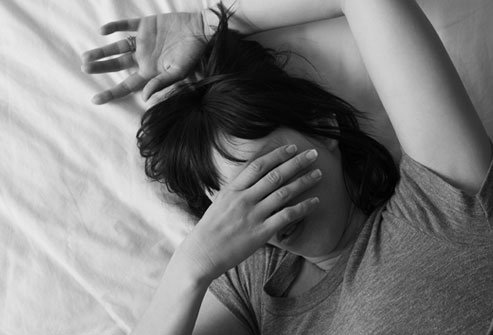
Electroconvulsive Therapy – More than a shocking treatment?
December 21, 2014
CBT for Insomnia – What Techniques can be used?
January 28, 2015An Introduction
Most people will experience sleep disturbance at some point in their life, since sleep is linked to physiological and psychological processes that are extremely sensitive and which can be influenced by a multitude of factors. As can be seen from the diagnostic criteria according to the DSM IV classification, insomnia encompasses a number of symptoms which can have a significant negative impact on one’s health and quality of life. In fact, epidemiological data suggest that insomnia is responsible for 3.5 days per month of disability in people who suffer from it. This figure does not take into account the reduced productivity as a result of insomnia as well as the indirect contribution to workplace accidents, increased consumption of alcohol, falls amongst the elderly and a general sense of poor health. For these reasons, an effective treatment of insomnia would result in dramatic reductions in economic and social costs, as well as an improvement in the quality of life of patients. However, despite the widespread incidence and prevalence of sleep disturbances, insomnia is a relatively underestimated and undertreated condition.
Research Perspectives
A number of cognitive processes are thought to play a role in the development and maintenance of insomnia and these have been studied and elaborated in a number of different ways during the last 50 years. However it was not until the 1980’s, mainly through the work of Lichstein and Rosenthal, that the relationship between intrusive thoughts, cognitive activation and insomnia was addressed. This research was expanded upon further in the following decade, when the importance of cognitive distortions in the maintenance of insomnia, came to light. A number of significant developments resulted from these contributions: firstly, cognitive behavioural therapy (CBT) began to include techniques aimed at countering erroneous beliefs; secondly, the role that these beliefs have in the development and maintenance of insomnia, gained importance in the models describing the aetiology of the condition; and thirdly, the Dysfunctional Beliefs about Sleep Scale (DBAS) become the most widely used tool to identify dysfunctional beliefs about sleep.
Contemporary research focuses on a number of main areas; the complexity of different forms of intrusive thoughts and their management; distinguishing worry, ruminations, and intrusive thoughts; and understanding the meta-cognitive aspects involved in sleep disorders. Studies carried out over the last few years have enabled us to deepen our knowledge about insomnia and have confirmed the importance of cognitive aspects in the maintenance of the disorder, leading the American Academy of Sleep Medicine to suggest CBT as the first-line treatment for primary insomnia.
The Objectives of Cognitive Behavioural Therapy in Insomnia
As stated by Morin, CBT focuses on the factors that perpetuate insomnia over time. These include an excessive amount of time spent in bed, the habit of daytime naps, irregular waking and sleep patterns, excessive concern over the loss of sleep, ruminations about the daytime consequences of insomnia, as well as performance anxiety. The first objective of CBT is to change bad sleeping habits. However, this is sometimes not sufficient as patients with chronic insomnia, not only have poor sleeping habits, but also indulge in irregular sleep schedules. Therefore another objective is to regulate the patient’s sleep-wake cycle. Furthermore, CBT also aims to correct distorted beliefs and attitudes toward sleep and since it is known that arousal may be a significant factor in insomnia CBT also aims to reduce physiological, cognitive, and emotional hyper-arousal. Another significant goal of CBT is to help patients develop better coping skills. This is important since most cases of chronic insomnia are never entirely treated, and the majority of patients who complete any kind of therapy might continue to have residual sleep problems. To ensure that these problems remain mild and/or occasional, cognitive restructuring of the expectations and beliefs about sleep, helps patients adjust to the occasional loss of sleep and thereby minimise its effects. This process also serves as a precursor for the ultimate goal of therapy; that of relapse prevention.

